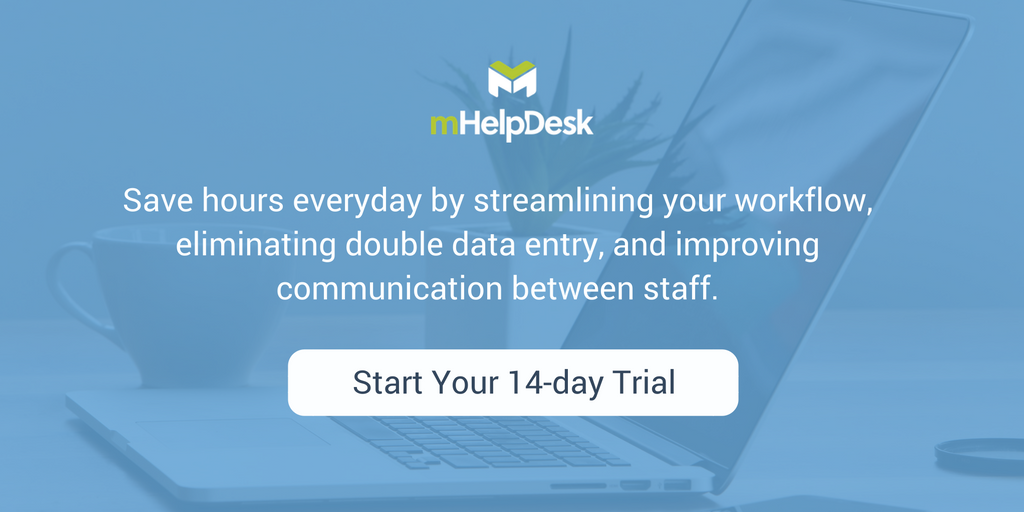Business financing is like a buffet: lots of options but only certain ones may appeal to your appetite.
On the one hand, you have equity financing, which allows you to raise capital for your field service company from private investors. The trade-off is that in exchange for funding, you’re giving investors an ownership stake in the business.
Debt financing, by comparison, can help you get the capital you need without sacrificing equity. Instead, you take out a business loan, which is repaid over time out of your cash flow.
If you’re considering applying for a loan to grow your business—whether it’s to fill a short-term need or fuel long-term growth—choosing the right one is essential. Comparing different loan products can help you avoid ending up with the wrong form of financing.
Term Loans
Best for: Businesses that need working capital for short-term financing; businesses that need to fund large-scale investments
- How much can you borrow? $10,000 to $1 million
- How long do you have to repay? 1 to 10 years
- What’s the interest rate? 6% to 30%
- How quickly can you get funding? As little as 2 business days
Term loans are one of the most versatile forms of business financing. They work like this: you borrow a set amount of money from the lender, and agree to repay the loan in fixed payments over a set period of time.
A term loan is multifunctional. For example, you can get a short-term loan to cover your cash flow financing needs: funds to cover payroll, insurance premiums, a website redesign or other miscellaneous operating expenses. A long-term loan, on the other hand, could help you expand into a new office space, renovate your current location or invest in important equipment.
Helmsmen Home is a customer residential construction company based out of Northern Kentucky. Founder Herb Scheenberg had been renting equipment, but with expansion plans in mind, he knew he needed a long-term solution. “We got the point where we need equipment to be owned and not rented. The cost of renting equipment for one week was the same price as what it would be to make a payment for that equipment for one month.” Scheenberg used a term loan to purchase equipment for Helmsmen Home.
Small Business Administration (SBA) loans
Best for: Startups and established businesses who want to get the best interest rates and don’t necessarily need funding right away
- How much can you borrow? $5,000 to $5,000,000
- How long do you have to repay? 5 to 25 years
- What’s the interest rate? 6% to 13%
- How quickly can you get funding? 1 to 6 months
The Small Business Administration offers several loan programs for new and established business owners. The obvious benefits of an SBA loan are the higher lending limits, lower interest rates and longer repayment terms.
Those are advantages if you need financing for something big, like a large-scale construction project or a major equipment purchase. The downside? Compared to other types of financing that can put money in your business’s account within a few business days, you’re looking at a longer wait—oftentimes upwards of two or three months—for SBA funding.
Equipment and Construction Loans
Best for: Businesses that need fast funding for equipment purchases or expansion plans
- How much can you borrow? $5,000 to $1,500,000
- How long do you have to repay? 6 months to 10 years
- What’s the interest rate? 7% to 30%
- How quickly can you get funding? 4 to 10 business days
Buying a fleet of new vehicles for your plumbing operation, moving your HVAC company into an official office space, and completely overhauling equipment for your landscape business all take money. Equipment and construction loans can deliver funding up to $1.5 million, and in less time than an SBA loan.
These loans can be offered by banks or online lenders. Generally, the equipment you’re financing would be the collateral for an equipment loan. A construction loan, on the other hand, might require other business assets as security. Both loans may require a personal guarantee, meaning you assume personal responsibility for making sure the loan is repaid.
Peer-to-Peer Business Loans
Best for: Business owners whose credit profile might keep them from qualifying for other types of business loans
- How much can you borrow? $2,000 to $500,000
- How long do you have to repay? 1 to 5 years
- What’s the interest rate? 6% to 36%
- How quickly can you get funding? 2 to 14 business days
P2P lenders take small business financing to the crowd. Instead of borrowing from a bank, you’re borrowing from a group of investors.
A P2P loan might make sense if you have a newer home service business or you don’t have the best credit profile. Traditional banks tend to have tighter credit guidelines so it may be easier to get approved for a P2P loan when you’ve got a lower credit score. Just remember that a lower score could mean a higher interest rate.
Business loans aren’t created equally and one may suit your objectives better than another. Reviewing the loan terms and fees up front is the first step to getting the financing you need to make your field service business’s aspirations a reality.
Bond Street is transforming small business lending through technology, data and design. Bond Street offers term loans of up to $1 million, with interest rates starting at 6%.
Last Updated By: Rochelle Sanchirico
Field Service Automation
Service Solutions
Last modified: January 15, 2018







